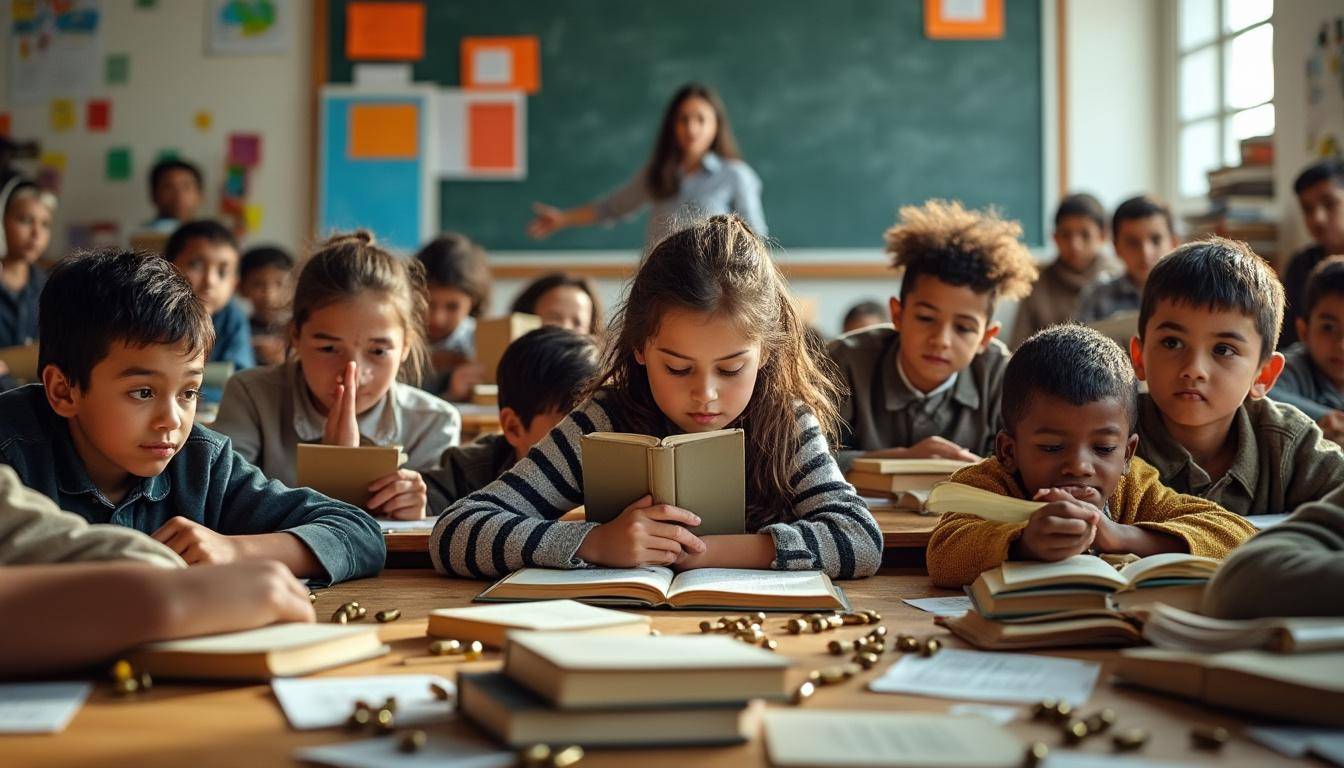In 2025, America’s literacy crisis unfolds not on distant battlefields but within the hallways of public schools. This silent emergency dents the future of a generation, with alarming declines in reading skills amid soaring educational expenditures. Grades sink as children’s enthusiasm for reading fades—only 42% of nine-year-olds and a mere 17% of thirteen-year-olds read for pleasure almost daily, marking a four-decade low. Despite investments in programs like Scholastic, Penguin Random House’s initiatives, and interactive platforms such as Epic! and Raz-Kids, literacy rates plunge, jeopardizing critical thinking and economic prospects. The urgency to restore literacy demands a collective commitment from families, educators, and policymakers, rekindling young learners’ innate curiosity and fostering purposeful reading experiences.
Understanding the Literacy Crisis: Young Minds Struggling to Read in 2025
Recent assessments reveal a troubling reality: nearly 28% of U.S. adults read at a third-grade level or below, and over half cannot comprehend at a sixth-grade standard. The National Assessment of Educational Progress (NAEP) shows downward trends, with fourth- and eighth-graders losing ground — reading proficiencies hitting a 32-year low.
- Emotional and intellectual gaps: Schools prioritize soft skills over core knowledge, leaving students emotionally engaged but academically underprepared.
- Technological distractions: While devices like Kindles and Chromebooks populate classrooms, they have not ignited the passion for reading or deep literacy skills.
- Outsourcing cognition: Dependence on calculators and AI tools reduces critical memorization and problem-solving aptitude.
This downward spiral affects not just educational success but the future workforce and informed citizenship. For more insights into harnessing technology positively in education, visit digital literacy essentials.
Why Reading for Pleasure Matters in Building Strong Minds
Reading beyond textbooks nurtures imagination and cognition. Yet, today’s youth, more than ever, report reading for enjoyment less frequently. Initiatives like Reading Rainbow and Starfall seek to reverse this trend by making stories accessible and captivating.
- Encouraging family reading nights reinvigorates communal learning and emotional bonds.
- Library visits foster curiosity and independent exploration.
- Integrating engaging content from National Geographic Kids or Flocabulary promotes learning through varied formats.
Embracing such practices can spark lifelong literacy habits essential for academic success and personal growth, supporting efforts described in our literacy training initiatives.
Failing Our Futures: Financial Input vs. Educational Outcomes
Despite inflation-adjusted per-student spending increasing by 25% between 2002 and 2020 to over $16,000 annually, literacy rates decline. This gap highlights systemic inefficiencies:
- Excessive administrative costs siphon funds away from direct classroom support.
- Inadequate focus on phonics instruction compared to ineffective whole-word reading methods.
- Participation trophies dilute academic rigor, masking true proficiency.
Redirecting resources towards evidence-based approaches, such as Hooked on Phonics and Oxford University Press curricula, alongside tutoring and debate programs, can elevate learning quality.
Explore effective education revamps through successful program models fostering accountability and measurable advancement.
Empowering Parents and Students: The Case for School Choice and Active Involvement
Parental participation remains the strongest predictor of student achievement. Despite this, many voices are sidelined in education policy debates. Empowering families to choose schools that align with their values can restore trust and outcomes.
- Including parents in decision-making bolsters transparency and responsiveness.
- Promoting diverse educational models encourages competition, innovation, and personalized learning.
- Rejecting ideological conflicts ensures focus on fundamental literacy skills rather than divisive cultural debates.
Discover stories on how inclusive education transforms communities by visiting migrant education efforts and integrated arts programs.
Reigniting the Spark for Cognitive Growth Through Storytelling and Debate
To translate complex societal and civic concepts to young learners, storytelling remains a powerful tool. Literature from publishers like Penguin Random House opens windows to diverse experiences, cultivating empathy and critical thinking.
- Incorporating debate and rhetoric teaches logic and argument analysis, vital skills for a digital age overwhelmed with information.
- Promoting library advocacy supports trained librarians as essential guides, a key defense in the battle for literacy.
- Making books appealing counters distractions from short-form videos on platforms like TikTok, challenging young minds to concentrate longer.
Programs like Scholastic’s book fairs and Epic!’s digital libraries exemplify ways to make reading an attractive adventure once again. Learn how art and decision-making intersect in education at art algorithms and youth decision.


